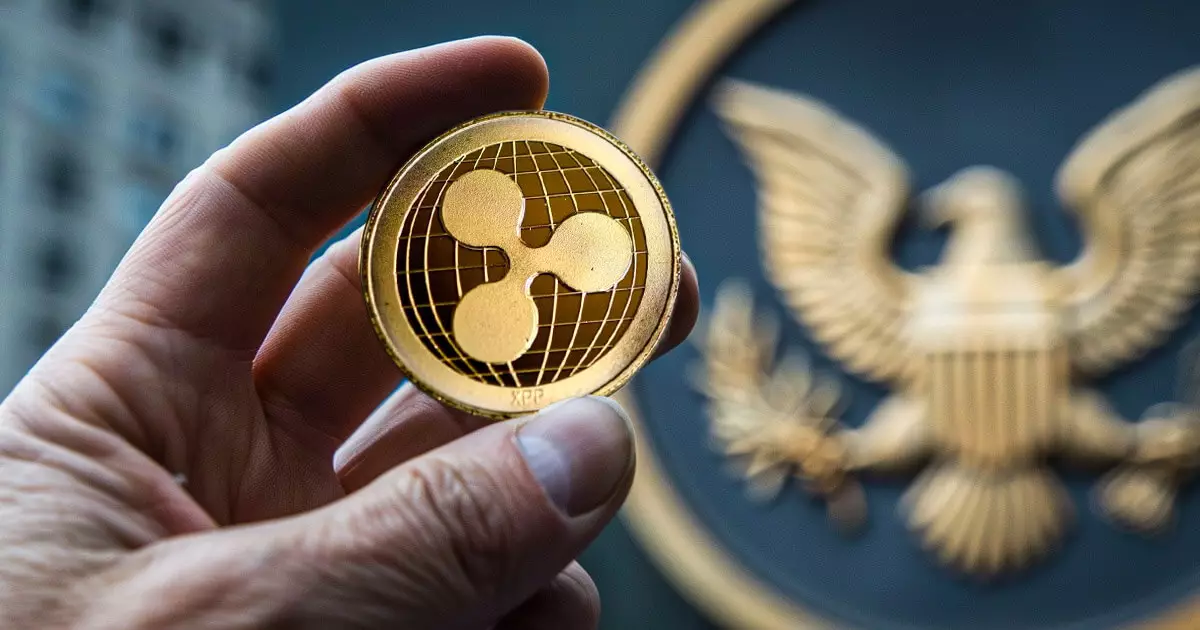The ongoing legal disputes between Ripple Labs and the U.S. Securities and Exchange Commission (SEC) have been a focal point in the ever-evolving cryptocurrency landscape. The complexity of regulatory frameworks and enforcement actions within this burgeoning sector raises critical questions about fairness, innovation, and the future of digital assets. With Ripple’s recent cross-appeal against the SEC, the chapter of this saga is far from over, underscoring the need for a deeper examination of the implications for the entire cryptocurrency ecosystem.
Since its inception, Ripple has faced an uphill battle against regulatory scrutiny, primarily due to the classification of its XRP token. The SEC accused Ripple of violating securities laws by offering unregistered securities through XRP, claiming a staggering $1.3 billion worth of illegal transactions. Ripple’s response, however, sheds light on the deeper tensions surrounding cryptocurrency regulation. On October 10, Ripple filed a cross-appeal in the Second Circuit Court, following the SEC’s earlier attempt to overturn a favorable summary for Ripple regarding programmatic sales of XRP to retail investors. This legal maze reflects broader industry concerns about regulatory overreach and the SEC’s approach to cryptocurrency.
The July 2023 ruling by Judge Analisa Torres brought a mixed bag of outcomes. Her decision acknowledged that while institutional sales of XRP approached illegal territory, the programmatic sales and distributions aimed at retail investors were not securities offerings. This pivotal distinction has significant implications for Ripple, allowing it to maintain a degree of operational normalcy, yet also underscored the precarious balance companies must strike within regulatory parameters. The SEC’s initial reaction was to file an appeal, seeking remedies that included an eye-watering $2 billion fine. However, Judge Torres subsequently imposed a reduced penalty of $125 million, a figure that, while far less than the SEC sought, illustrates the tense balancing act in regulating innovative financial technologies.
Ripple executives have articulated a growing frustration with the SEC’s tactics, painting the regulatory body as an antagonist delaying necessary industry clarity. Stuart Alderoty, Ripple’s Chief Legal Officer, emphasized that the cross-appeal intends to “ensure that nothing is left on the table.” This statement shines a light on Ripple’s commitment to safeguarding what it perceives as a positive trajectory for the company while challenging what it perceives as overzealous regulatory actions. CEO Brad Garlinghouse echoed these sentiments, accusing the SEC of fostering confusion rather than clarity and suggesting that the agency’s enforcement-focused agenda stifles innovation.
Ripple’s legal battle carries much weight beyond the company’s fortunes. This conflict serves as a bellwether for how regulatory agencies may approach other cryptocurrency projects in the future. The outcome of these appeals could set critical precedents for how digital assets are classified and regulated. A ruling in Ripple’s favor could reinforce the notion that certain token distributions are not inherently securities, thereby providing a more supportive regulatory framework for other crypto start-ups. On the flip side, a ruling in favor of the SEC may deter innovation and instill a climate of fear where companies are reluctant to pursue novel ideas out of concern for regulatory repercussions.
As the legal wrangling continues, the future of Ripple—and potentially other cryptocurrency ventures—hangs in the balance. Investors, stakeholders, and industry observers will need to remain vigilant as the appeals process unfolds in the coming months. The implications of this case will reverberate through the crypto industry, prompting ongoing dialogue about regulation, innovation, and the fundamental principles that guide financial technology. Ultimately, whether Ripple can secure a definitive ruling that curtails the SEC’s aggressive stance will not only impact its business model but will also pave the way for a more robust regulatory dialogue within the increasingly important sector. The stakes have never been higher, and as the crypto world watches, the outcome remains uncertain—teaching us all about the volatility not just of currencies, but also of the regulatory frameworks that govern them.

